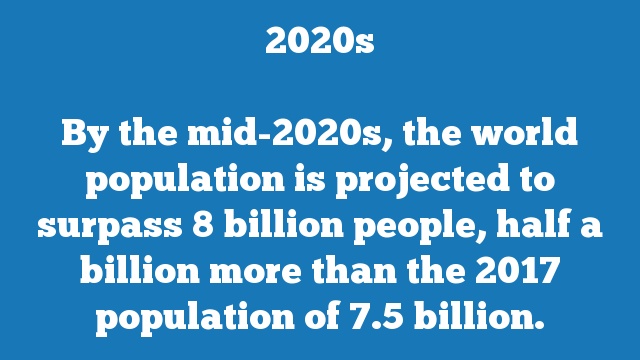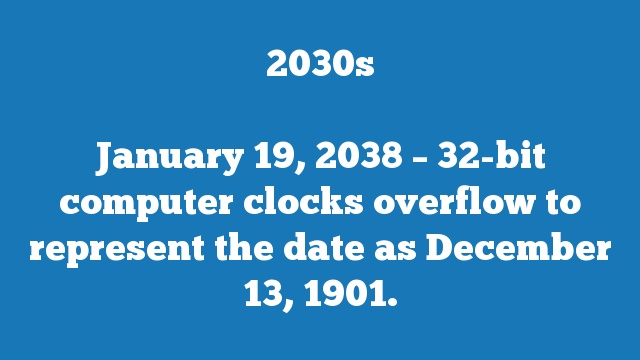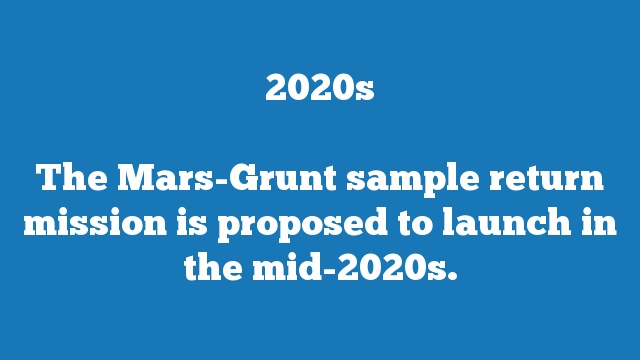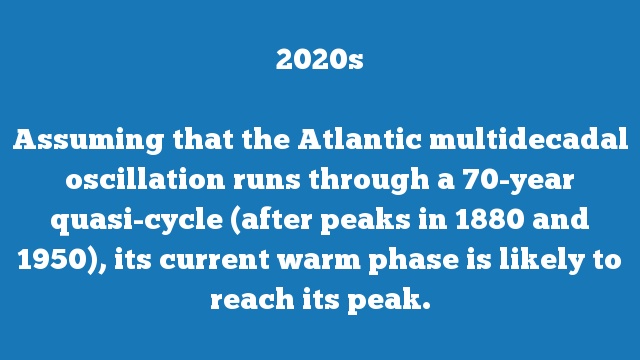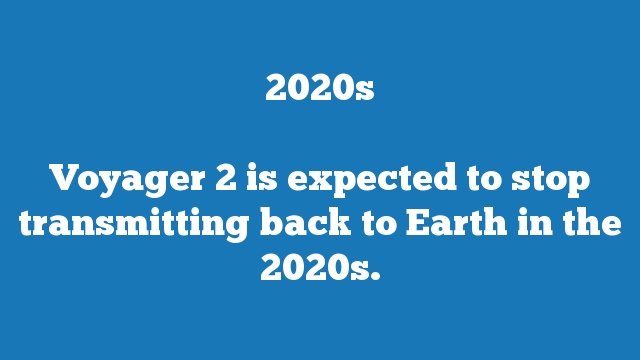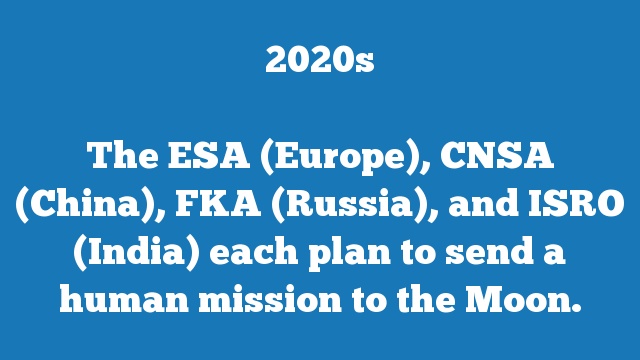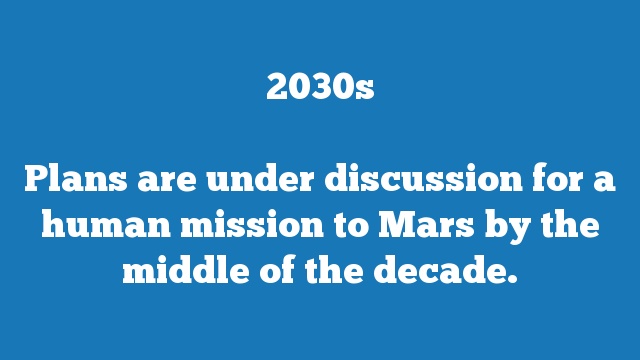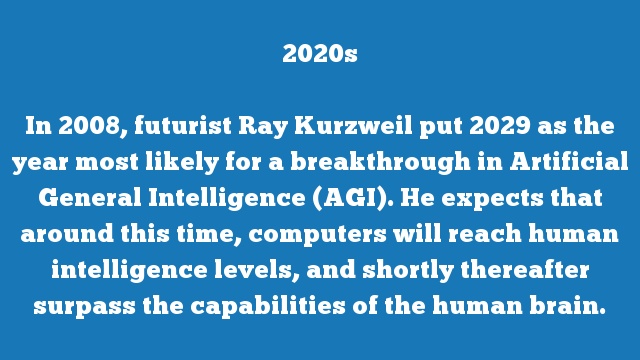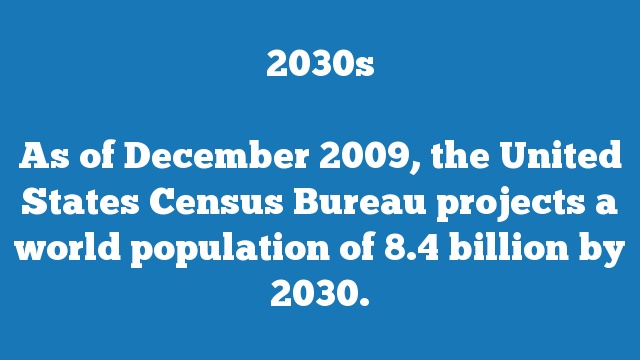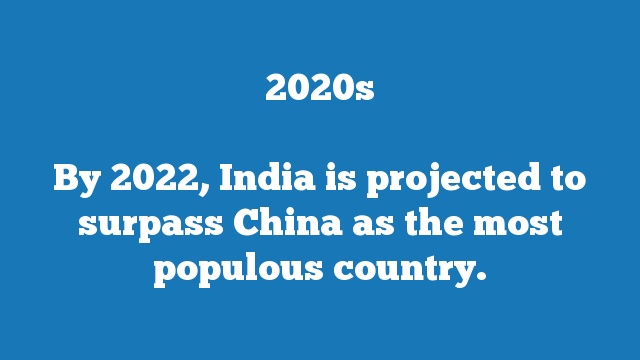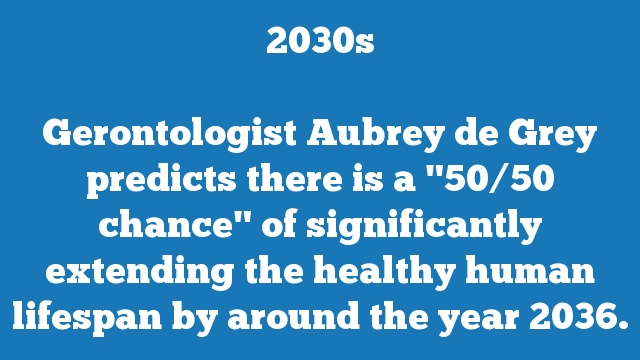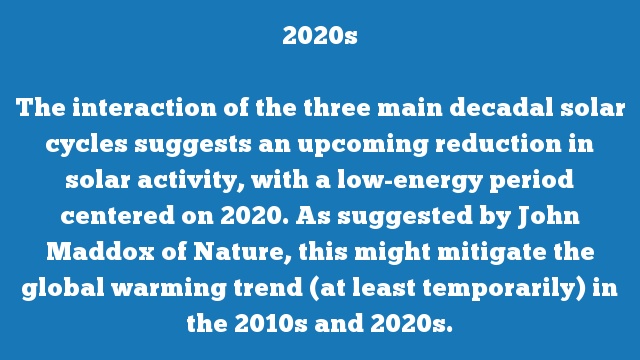By the mid-2020s, the world population is projected to surpass 8 billion people, half a billion more than the 2017 population of 7.5 billion.
Notables
Predictions and Events for the 2030s #3
Source: Wikipedia
January 19, 2038 – 32-bit computer clocks overflow to represent the date as December 13, 1901.
Predictions and Events for the 2020s #9
Source: Wikipedia
The Mars-Grunt sample return mission is proposed to launch in the mid-2020s.
Predictions and Events for the 2020s #2
Source: Wikipedia
Assuming that the Atlantic multidecadal oscillation runs through a 70-year quasi-cycle (after peaks in 1880 and 1950), its current warm phase is likely to reach its peak.
Predictions and Events for the 2020s #5
Source: Wikipedia
Voyager 2 is expected to stop transmitting back to Earth in the 2020s.
Predictions and Events for the 2020s #3
Source: Wikipedia
The ESA (Europe), CNSA (China), FKA (Russia), and ISRO (India) each plan to send a human mission to the Moon.
Predictions and Events for the 2030s #4
Source: Wikipedia
Plans are under discussion for a human mission to Mars by the middle of the decade.
Predictions and Events for the 2020s #6
Source: Wikipedia
In 2008, futurist Ray Kurzweil put 2029 as the year most likely for a breakthrough in Artificial General Intelligence (AGI). He expects that around this time, computers will reach human intelligence levels, and shortly thereafter surpass the capabilities of the human brain.
Predictions and Events for the 2030s #1
Source: Wikipedia
As of December 2009, the United States Census Bureau projects a world population of 8.4 billion by 2030.
Predictions and Events for the 2020s #8
Source: Wikipedia
By 2022, India is projected to surpass China as the most populous country.
Predictions and Events for the 2030s #5
Source: Wikipedia
Gerontologist Aubrey de Grey predicts there is a “50/50 chance” of significantly extending the healthy human lifespan by around the year 2036.
Predictions and Events for the 2020s #1
Source: Wikipedia
The interaction of the three main decadal solar cycles suggests an upcoming reduction in solar activity, with a low-energy period centered on 2020. As suggested by John Maddox of Nature, this might mitigate the global warming trend (at least temporarily) in the 2010s and 2020s.
